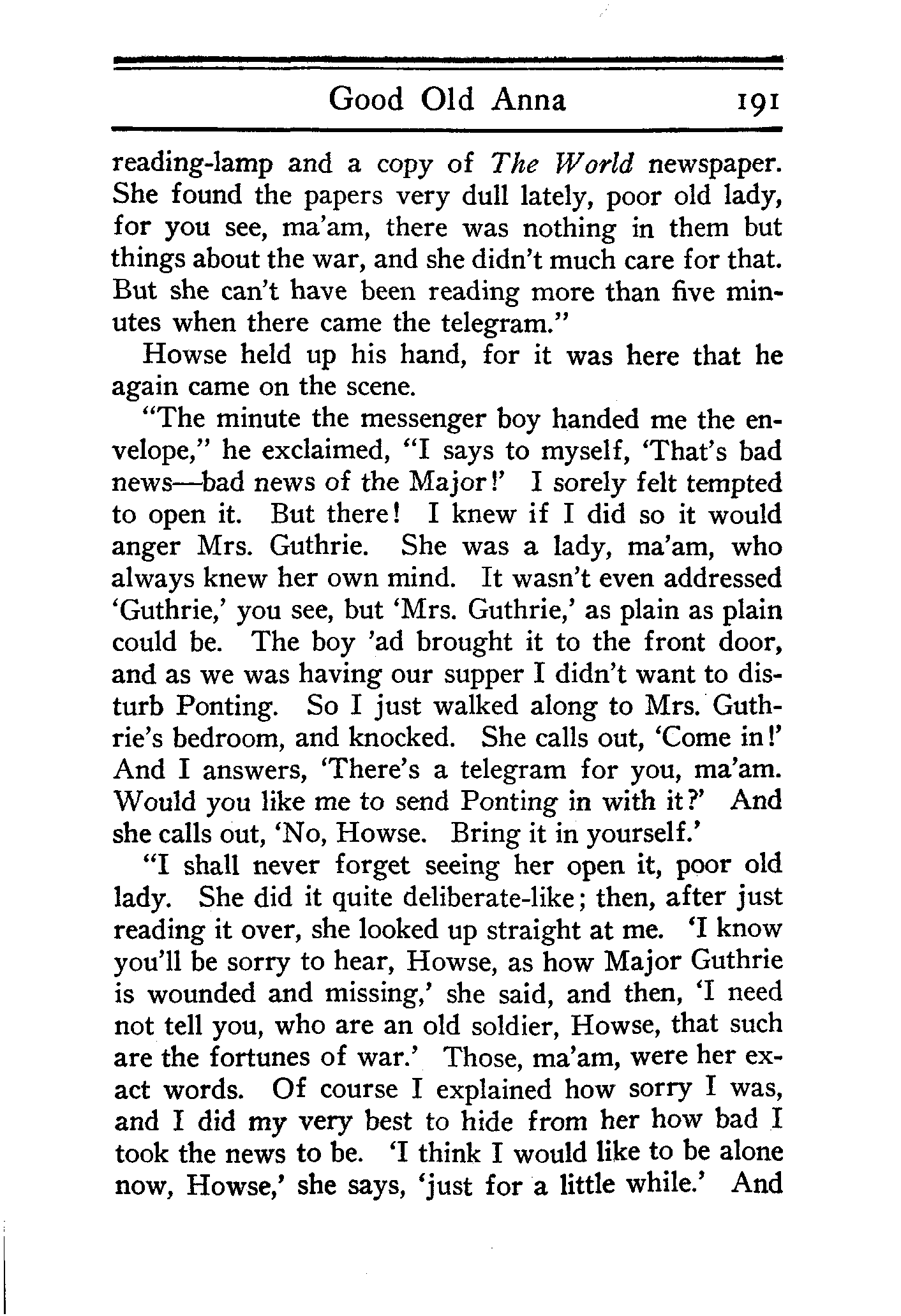 p190 _
-chap- _
toc-1 _
p191w _
toc-2 _
+chap+ _
p192
p190 _
-chap- _
toc-1 _
p191w _
toc-2 _
+chap+ _
p192
reading-lamp and a copy of _The_World_ newspaper.
She found the papers very dull lately, poor old lady,
for you see, ma'am, there was nothing in them but
things about the war, and she didn't much care for that.
But she can't have been reading more than five minutes
when there came the telegram."
Howse held up his hand, for it was here that he
again came on the scene.
"The minute the messenger boy handed me the envelope,"
he exclaimed, "I says to myself, 'That's bad
news -- bad news of the Major!' I sorely felt tempted
to open it. But there! I knew if I did so it would
anger Mrs. Guthrie. She was a lady, ma'am, who
always knew her own mind. It wasn't even addressed
'Guthrie,' you see, but 'Mrs. Guthrie,' as plain as plain
could be. The boy 'ad brought it to the front door,
and as we was having our supper I didn't want to disturb
Ponting. So I just walked along to Mrs. Guthrie's
bedroom, and knocked. She calls out, 'Come in!'
And I answers, 'There's a telegram for you, ma'am.
Would you like me to send Ponting in with it?' And
she calls out, 'No, Howse. Bring it in yourself.'
"I shall never forget seeing her open it, poor old
lady. She did it quite deliberate-like; then, after just
reading it over, she looked up straight at me. 'I know
you'll be sorry to hear, Howse, as how Major Guthrie
is wounded and missing,' she said, and then, 'I need
not tell you, who are an old soldier, Howse, that such
are the fortunes of war.' Those, ma'am, were her exact
words. Of course I explained how sorry I was,
and I did my very best to hide from her how bad I
took the news to be. 'I think I would like to be alone
now, Howse,' she says, 'just for a little while.' And
[[191]]
p190 _
-chap- _
toc-1 _
p191w _
toc-2 _
+chap+ _
p192